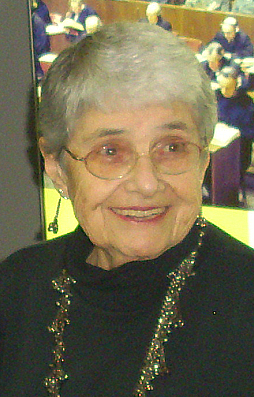Accomplish May 9, 2017


On August 18th 2014 Holocaust survivor Hedy Epstein was put in handcuffs and arrested during a protest in downtown St. Louis. Epstein decided to join a group of demonstrators who had gathered outside Missouri Gov. Jay Nixon’s office. The protestors were responding to Gov. Nixon’s decision to bring in the National Guard as a response to the fatal police shooting of Michael Brown in Ferguson Missouri. But when the police ordered the group to leave, Epstein refused. As a result, she was handcuffed, arrested, and charged with failure to disperse. Epstein had turned 90 three days before.
In an interview with The New York Times, the Holocaust survivor recalls the incident that led to her arrest. She hadn’t planned on being arrested but sort of volunteered to stay on a whim. Being a survivor of Jewish persecution in Germany, perhaps she felt like she didn’t have much to lose. But for those who knew of Ms. Epstein personally or otherwise, her decision to join the protest would not have come as a surprise. The gathering in St. Louis was just one of many protests that Epstein participated in as part of her lifelong commitment to social justice.
Ms. Epstein was born Hedwig Wachenheimer on August 15th 1924 in Freiburg Germany. Epstein’s mother was a stay at home mom and her father ran a dry goods company that was founded by his grandfather. In an interview with The St. Louis Dispatch, Epstein admitted that she wasn’t a perfect child, that she even accused her parents of having found her on their doorstep when they started to make plans of sending her away during the war. Her parents, who were secular anti-Zionist Jews, could not find a sponsor in the United States and they refused to emigrate to Jewish occupied Palestine. “They did not wish to live in a country that was run by Jews for Jews only,” Ms. Epstein reported to The Jerusalem Post.
Following the terrible Kristallnacht pogrom, Epstein was expelled from school and sent home to find the house ransacked and her father being dragged away by the police to spend four weeks at a camp in Dashau. After her father’s release Epstein’s parents arranged for her to leave for England along with other Jewish children on a Kinderstranport train and ship. Epstein was raised by foster parents in London until she left school at 16 to work at a munitions plant. Her parents died in Auschwitz along with nearly all of her aunts, uncles, and cousins.
Ms. Epstein returned to Germany in 1945 where she worked as a translator and researcher with the Allied War Crimes Tribunal. Three years later, she moved to the United States where she worked for an organization that brought Holocaust survivors to the U.S. But Ms. Epstein’s advocacy efforts were not limited to Holocaust survivors. She devoted her life to all matters concerning issues of social justice. In 1950 she worked in St. Paul as an advocate for refugees. She went on to protest the U.S. involvement in the Vietnam War and later dedicated her life to protesting the Jewish occupation of Palestine. In a radio interview Ms. Epstein remarked, “I can’t solve every problem — I probably can’t solve any problem, but I have to do whatever it is possible for me to do.”
While many people her age enjoyed a carefree life of retirement, Ms. Epstein continued her fight against all forms of injustice until her dying day. She passed away in May of 2016 at the age of 91.